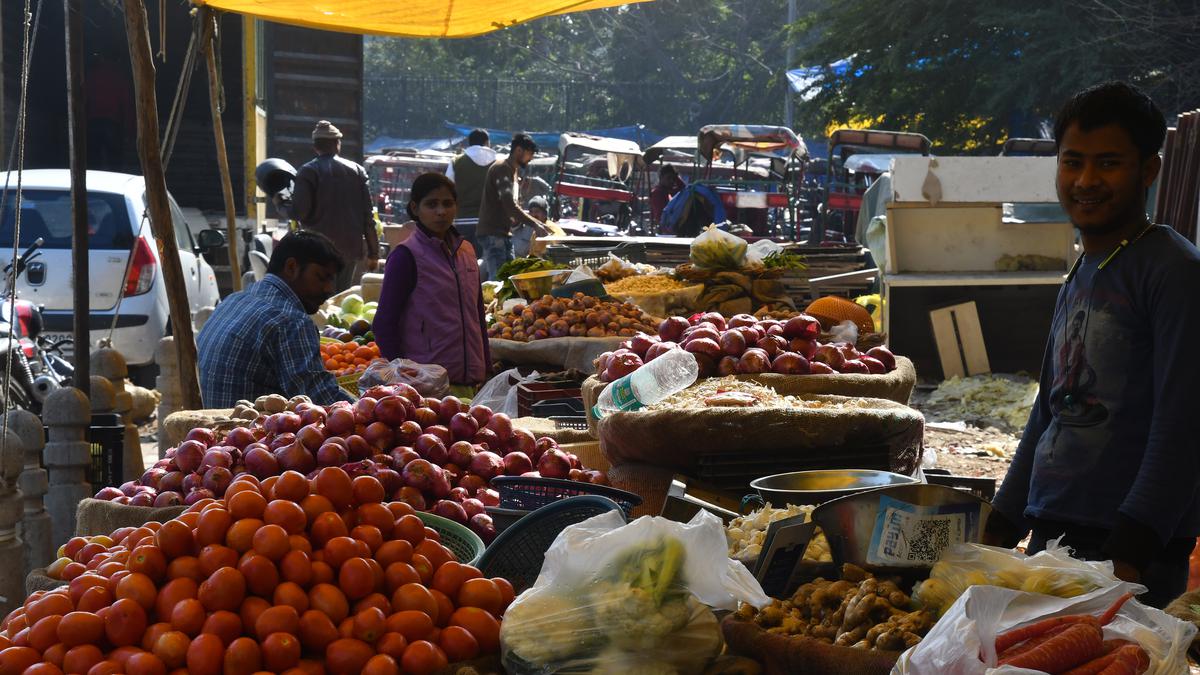NEW DELHI, Feb 13: Retail inflation based on consumer price index (CPI) rises to 6.52% in January, breaching Reserve Bank of India’s (RBI) comfort zone after 3 months, data released by the government showed on Monday.
The acceleration in CPI numbers has been mainly on account of spike in food prices.
Data released by the ministry of statistics and planning implementation shows, inflation rate for the food basket was at 5.94% in January, up from 4.19% in December.
In December 2022, inflation numbers had cooled to 5.72%.
The RBI has been mandated by the government to keep retail inflation within its tolerance band of 2-6%.
January’s retail inflation was above the Reserve Bank of India’s upper targeted limit of 6% for the first time since October.
“Clearly, the moderation in inflation in previous two months was not broad based and not durable signaling we are not out of the woods yet. This print strengthens the case for the RBI to raise rates once more in April — given their objective to bring durable moderation in inflation,” Sakshi Gupta, principal economist at HDFC Bank told Reuters.
Food, fuel prices rise
Food prices, which make up nearly half the index, increased 5.94%, while ‘fuel and light’ rose 10.84%.
Clothing and footwear costs went up 9.08% and housing prices picked up 4.62%, keeping core prices elevated.
Core inflation, which strips out volatile food and fuel costs, stayed above the 6% mark for the 16th month in a row.
Prices of cereals and products continued to remain high at 16.12%, while cost of spices too jumped by 21.09%. Milk rose 8.8% and eggs rose by 8.8% from last year, even as prices of vegetables fell 11.7%.
RBI’s inflation projection
In its bi-monthly monetary policy meet held last week, the RBI projected consumer inflation to be at 6.5% in the fiscal year 2023 and 5.3% for the fiscal year 2024.
The monetary policy committee (MPC), comprising three members from the central bank and three external members, raised the key lending rate or the repo rate to 6.5%, also in a split decision.
RBI governor Shaktikanta Das said that the inflation-adjusted, real interest rate remains below pre-pandemic levels and liquidity remains surplus, even though it is lower than during the pandemic.
“The stickiness of core or underlying inflation is a matter of concern. We need to see a decisive moderation in inflation. We have to remain unwavering in our commitment to bring down inflation,” RBI Das said, while announcing the committee’s decision.
A growing number of central banks around the world have signalled a pause or halt in their tightening in recent weeks as consumer inflation came off the boil and growth in their economies shows signs of softening.
However, with inflation above RBI’s threshold yet again in January, analysts expect RBI to continue with rate hikes. (Agencies)
Trending Now
E-Paper


